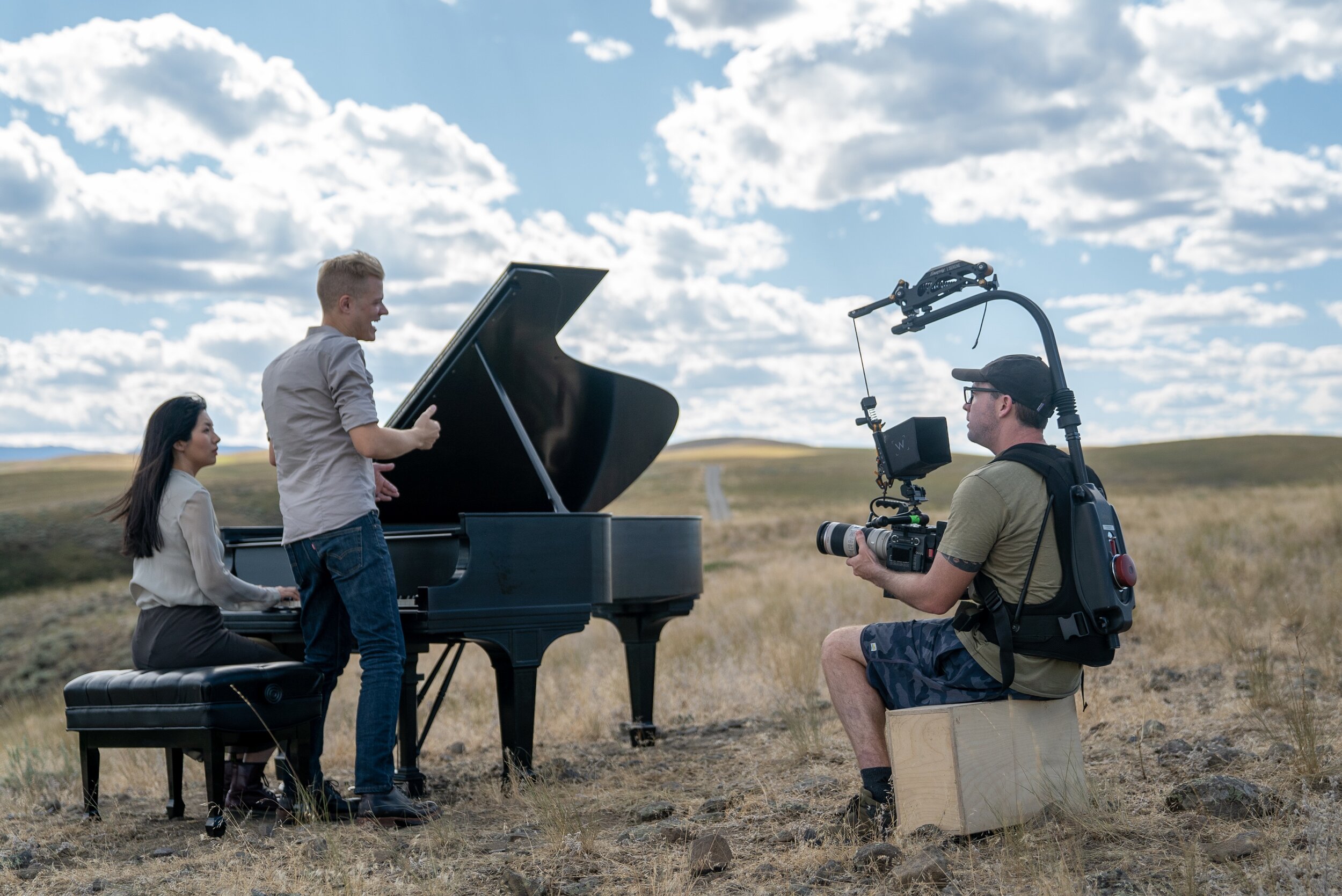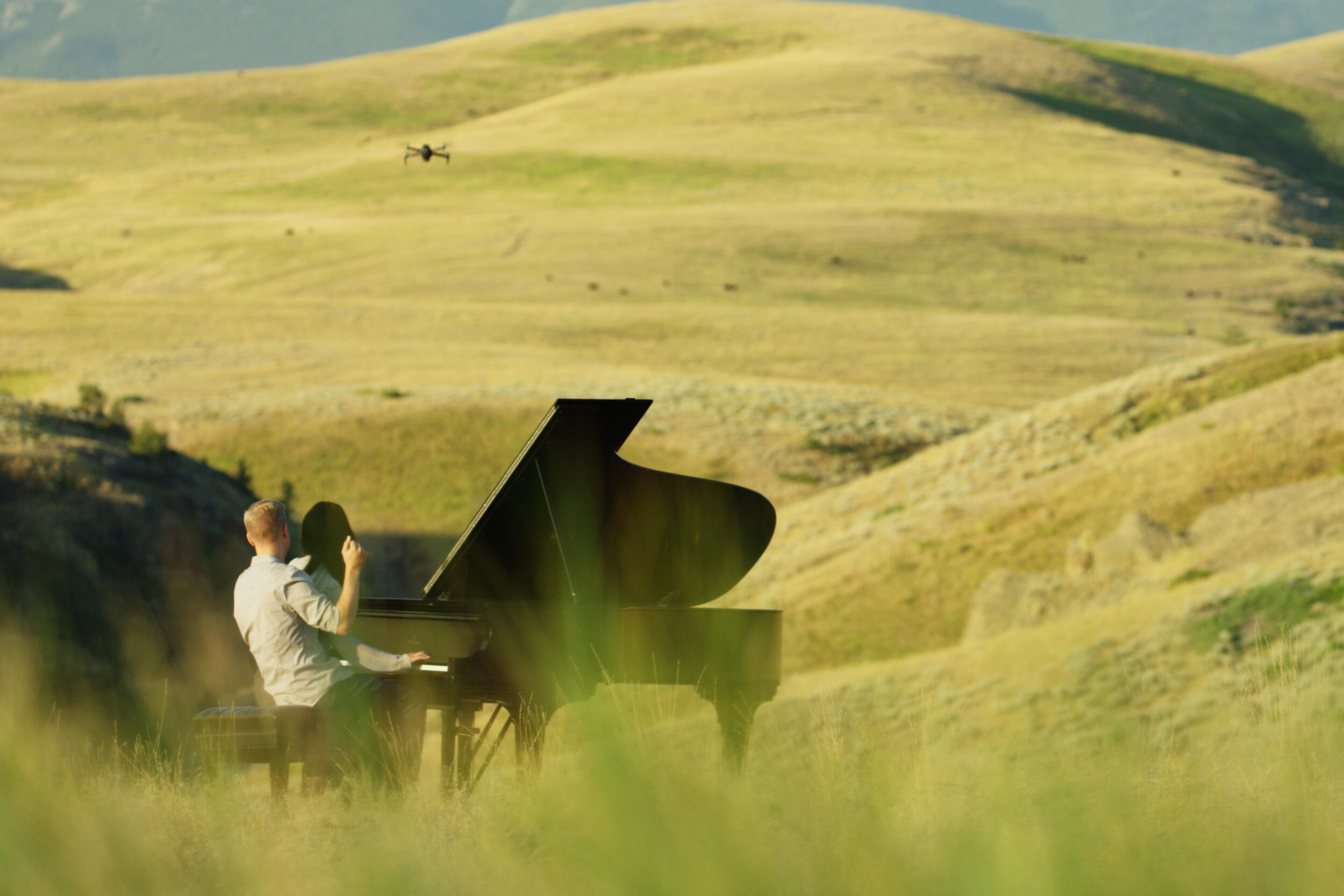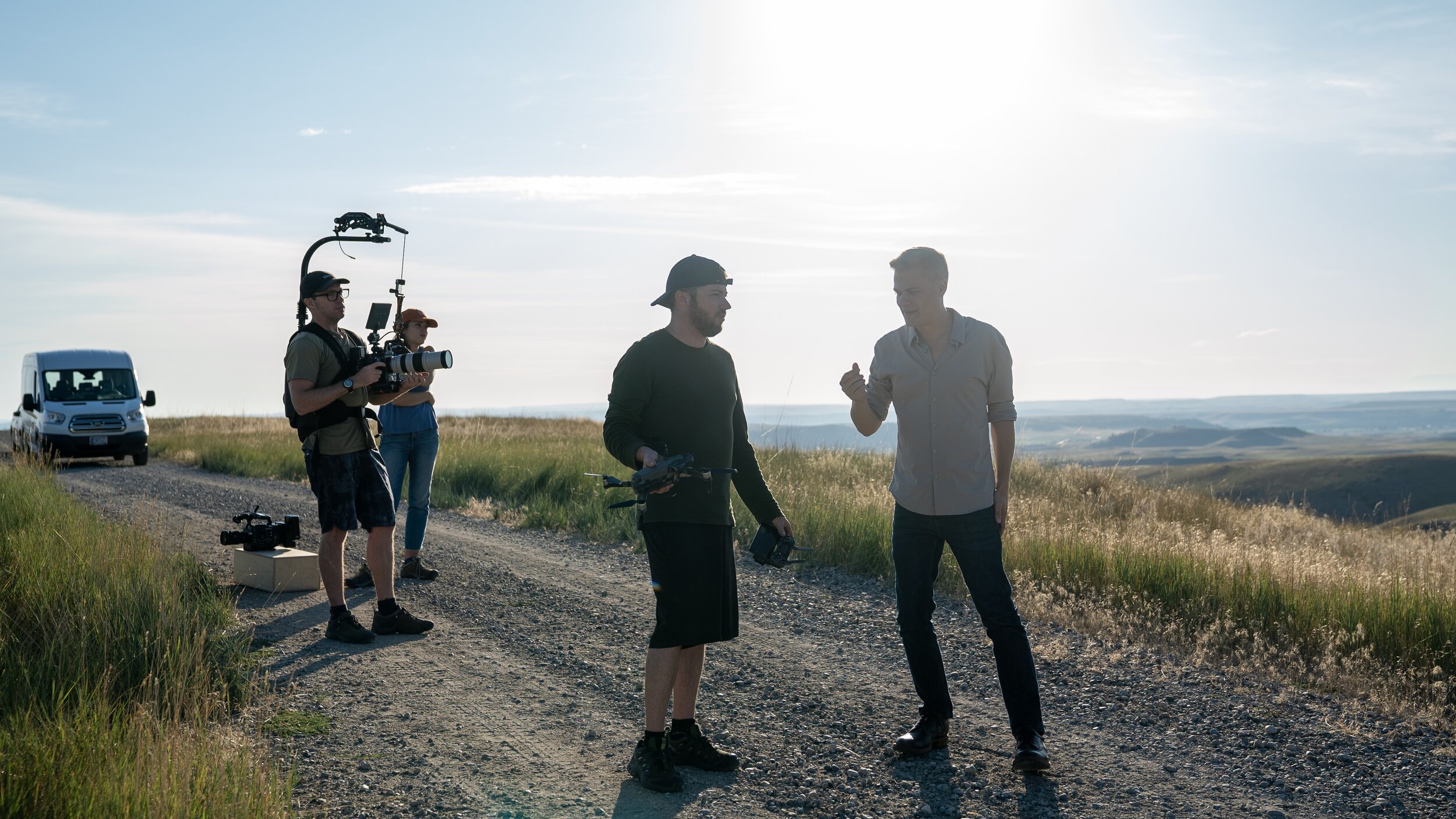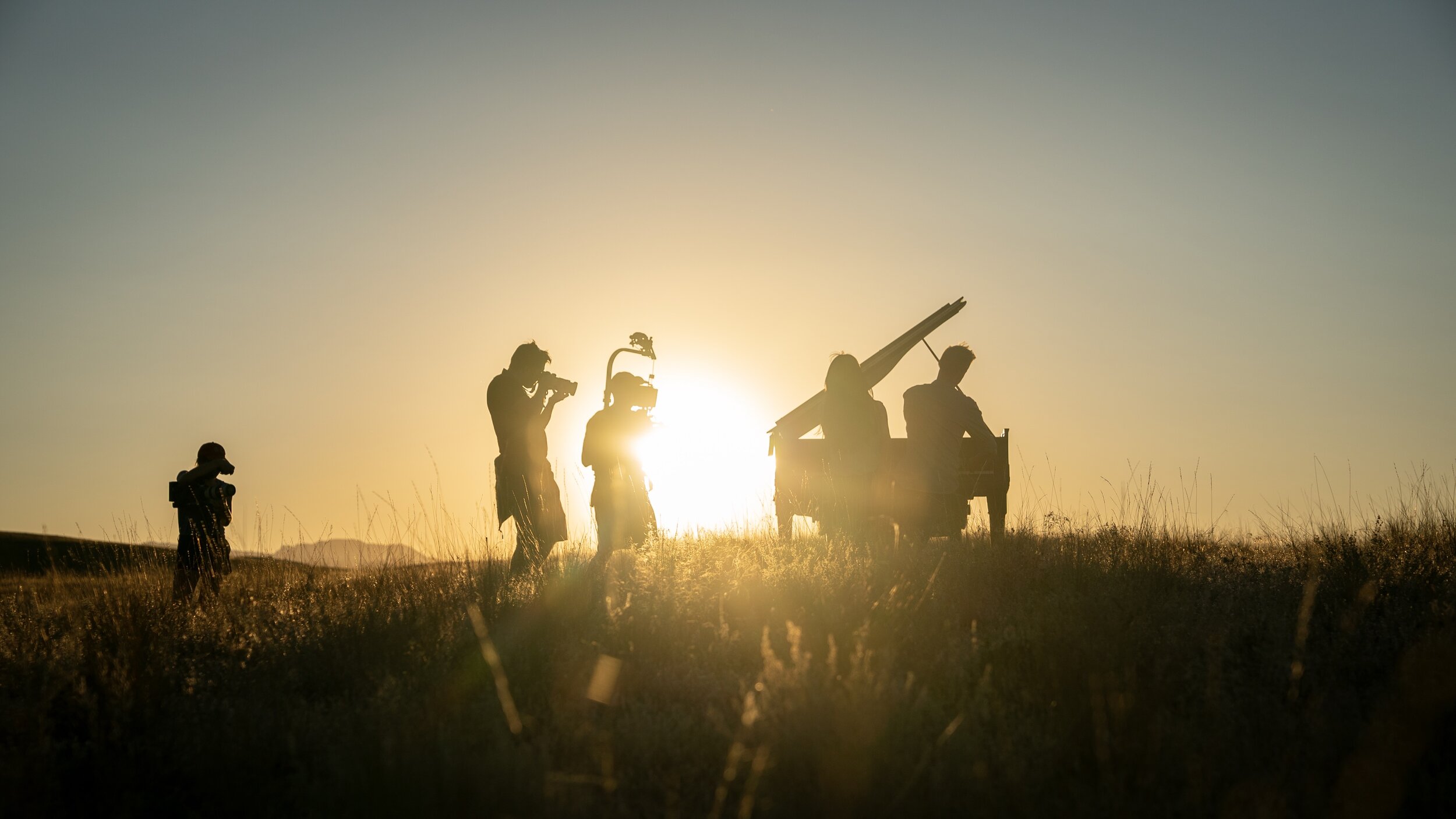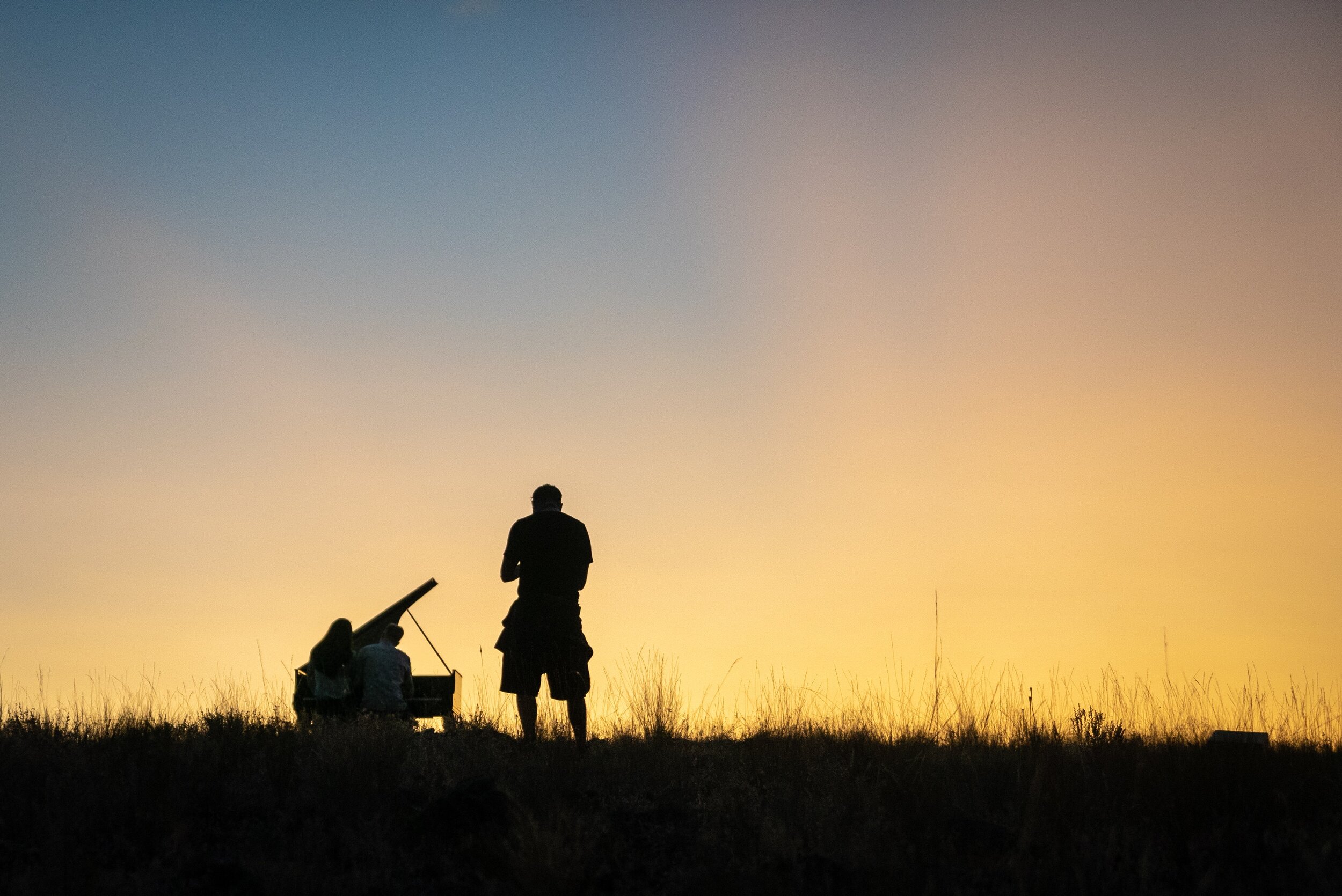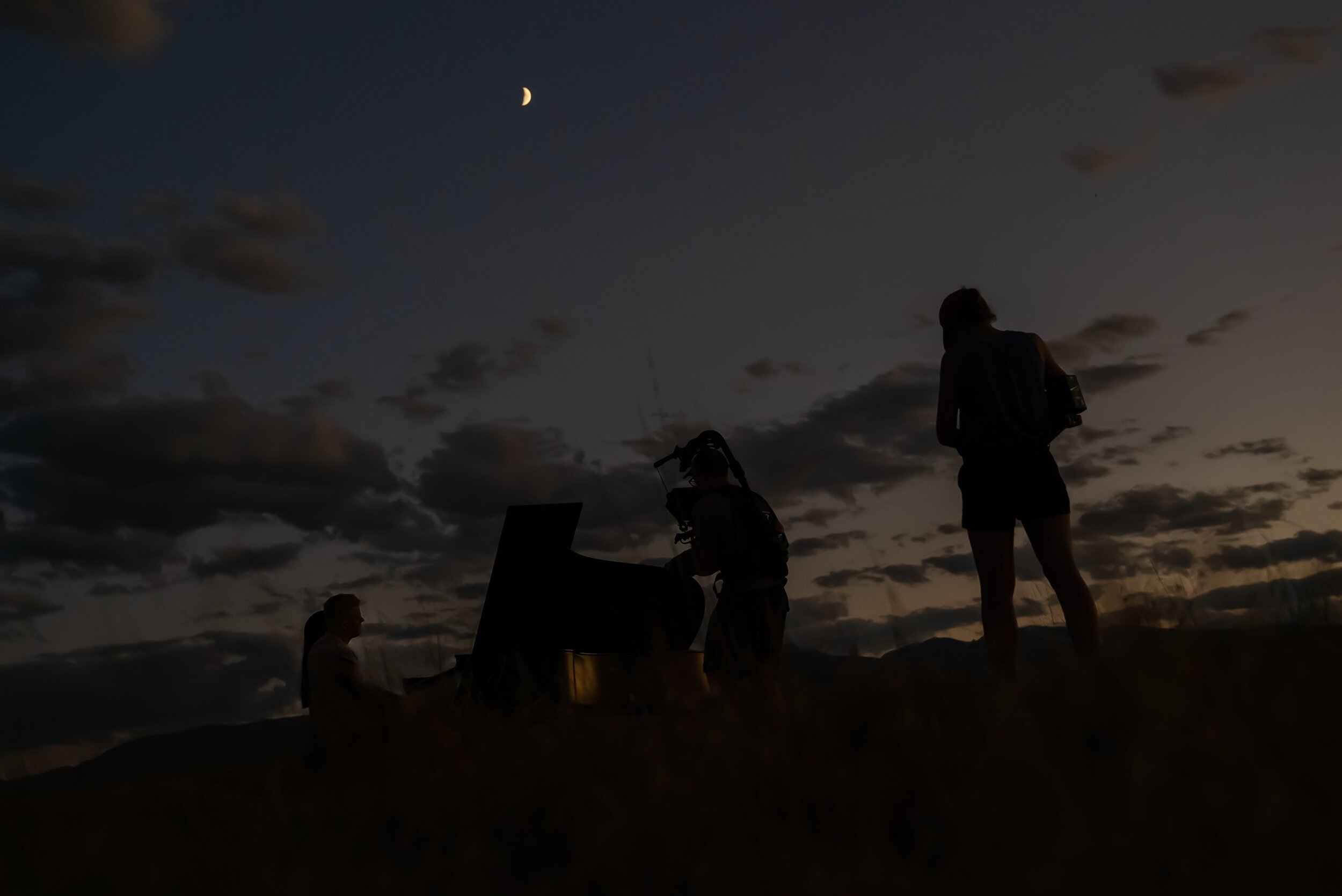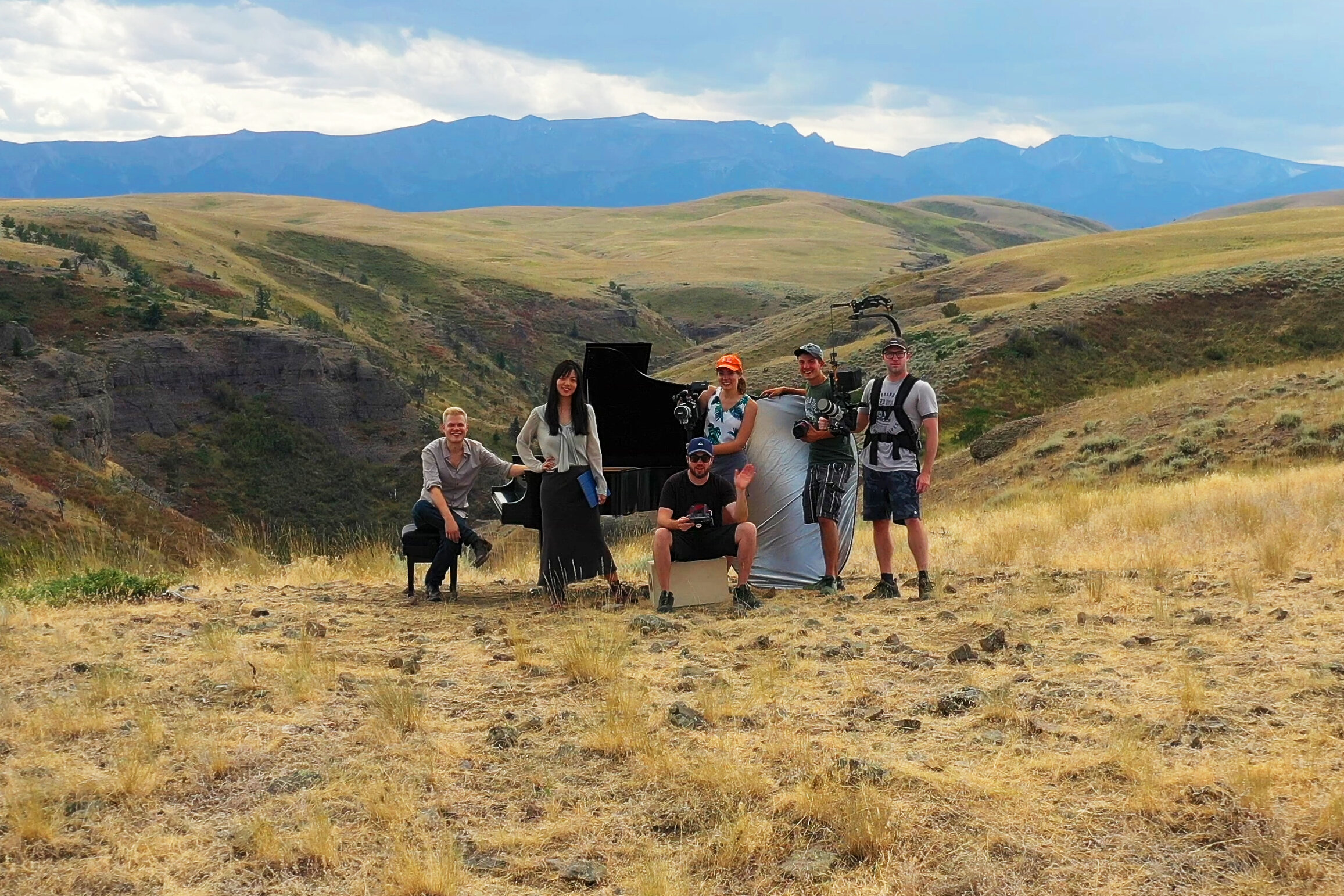2019 has been our year of music videos (Oblivion, What a Wonderful World, Lullaby, several Tippet Rise collaborations, and lots more to come…), but perhaps we’re most excited about our upcoming video production featuring the winner of our New Music New Video composition competition.
When International Piano Magazine asked for more information on our winner, Edgar Ordóñez, we realized all we knew was what he stated in his application—he is a 57-year-old composer from Columbia. Everything else was a complete mystery to us!
We reached out to Edgar for answers and were utterly charmed by his responses. It’s our great pleasure and honor to now shine the spotlight on Edgar, our New Music New Video International Man of Mystery. 😎
—
Greg: What went through your mind when you found out we’d selected your composition as the winning piece?
Edgar: I had a hard time giving credit to the result of your contest. After I sent you the score, I told myself that I shouldn't have done it, because I wouldn't stand a chance if I had to compete with professional composers who have solid academic backing and, no doubt, brilliant CVs. But that day I was surely influenced by an excess of optimism and sent that work.
Liz: We’re so glad your optimism won out! Tell us a little bit about your musical background.
Edgar: Unfortunately, there is not much to say about me, or what has to be said is too poor and perhaps it would be better not to say it. I am Colombian and live in Bogotá, although I was born in a small city where in my childhood and adolescence I did not find any opportunity to train in music, which was what I was passionate about: there was no conservatory, or academy, or music teachers. However, at the age of thirteen I had the madness of becoming a classical pianist, so even though I didn't have a piano at home because my parents couldn't afford to buy one, I managed to borrow an instrument from the only university in the city, and I began to study without any guide, trying to decipher some books on music theory, solfège and harmony that an amateur had in his library and that he had the generosity to lend them to me.
At the age of twenty I left that city and settled in Bogotá, but economic problems prevented me from continuing my dream of studying at a conservatory. In this city my situation was much more difficult, because I couldn't find anyone who could lend me an instrument. So, between that city, and then in Santiago de Chile, where I lived for a long period, about fifteen years passed in which I could not practice any piano at all. At that time I began to work in publishing houses, and finally my life was directed in that direction, either as an editor, or as a mercenary writer or ghostwriter, or as a style corrector. That's what I'm still working on and that's what I live by.
Greg: Really, it’s incredible to hear that you’re self-taught.
Liz: We’re on the edge of our seats… How did you get back into music and begin composing?
Edgar: I was in my forties when, in a better financial situation, I was able to buy an old piano, but it was too late to continue my studies as a pianist. My love of music and attachment to the old dream of being a musician motivated me to try composition, and I soon discovered that I actually had more talent for that specialty than for the piano.
Around the age of seventeen I tried to write a fugue, but was unable to complete it. In order to get rid of that old thorn, in middle age I decided to "graduate" as a self-taught composer by writing a series of fugues. I wrote five, and the "Fuga allucinata" is the third of them.
Music was not my only great love in life: so has literature, and since I felt indebted to my dreams of early adolescence, I have also spent time training myself as a writer and leaving some literary works. In fact, in recent years this activity has robbed music of a bit of time, although it has not been in vain: I have written several books between novels and short story books, and I have won some literary competitions in my country and some in Spain.
Liz: I can relate; music and literature are great passions of mine as well. How has your music not made its way to the masses? Have your compositions ever been performed?
Edgar: I live completely marginalized from musical circles, so the diffusion of my musical work is practically nil. I don't care much about that: finally what I'm interested in is creating, and I try to do the best I can. I've never been interested in becoming famous or looking for success, and I don't live on music either, so I've never set out to promote what I do. Anyway, as I am convinced that music is created to be listened to and not to be kept written in a drawer, I have a modest channel on YouTube where from time to time I upload some occurrences that I try to make audible in versions worked in a digital synthesizer. I prefer not to have a presence on social networks. Maybe it's a lack of self-confidence, as I'm perfectly aware that I can't consider myself a professional composer.
Liz: The joy and fulfillment of pure creativity is something we live for, too! And we’ve said it before— our judging criteria simply revolved around finding the piece that most excites us. We asked for very little personal information from our applicants because we hoped to connect with the winning composer based on the music, full stop.
Greg: Yes! You should be extremely proud. You’ve won an international composition competition over some very distinguished composers. Your compositional voice, while highly unique and personal, is undeniably at a professional level. Congratulations!
Edgar: I do not know how to express my gratitude to you and communicate to you the emotion and happiness that your decision has awakened in me.
I must add that for years I have enjoyed the versions that you publish on your YouTube channel. Congratulations on the excellence of your work. Some of your arrangements are simply fascinating and I must admit that you have come to awaken my envy. I have great empathy for your idea of what the future of music should be, and I congratulate you wholeheartedly on the effort you are making to channel the interest of new composers into a music that fuses the best of popular music with classical tradition. As you do, I am convinced that this is the new path that music must follow, a path in which rhythm is creatively and provocatively exploited, the sensual harmonic development and the innovative energy that jazz knew how to propose as an alternative to the dead end of the coldly cerebral atonalism and devoid of feelings and emotion.
Greg: We truly couldn’t be more thrilled to have you as a partner in our mission to make classical music a powerful and relevant force in society. I think our fans will be in complete agreement once they have the opportunity to hear your winning composition, “Fuga allucinata.” Bravo.
Liz: Absolutely. Thank you, Edgar. We can’t wait to share the music video we create together.


